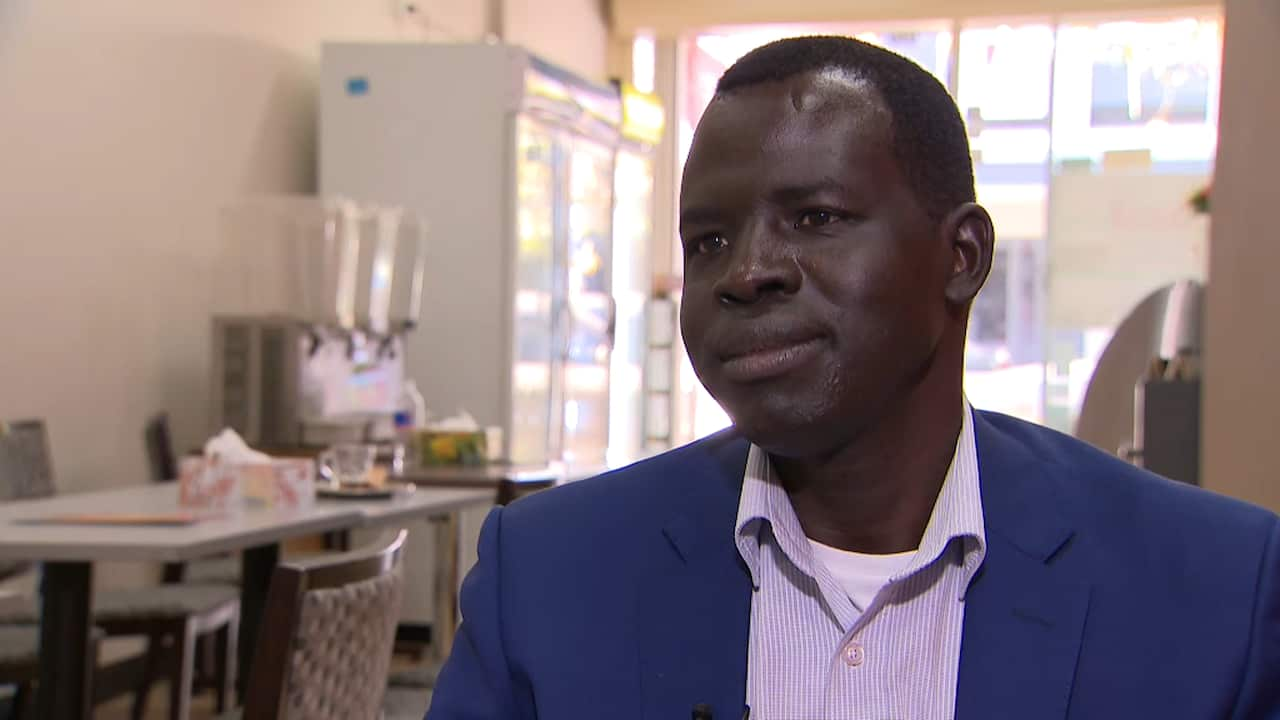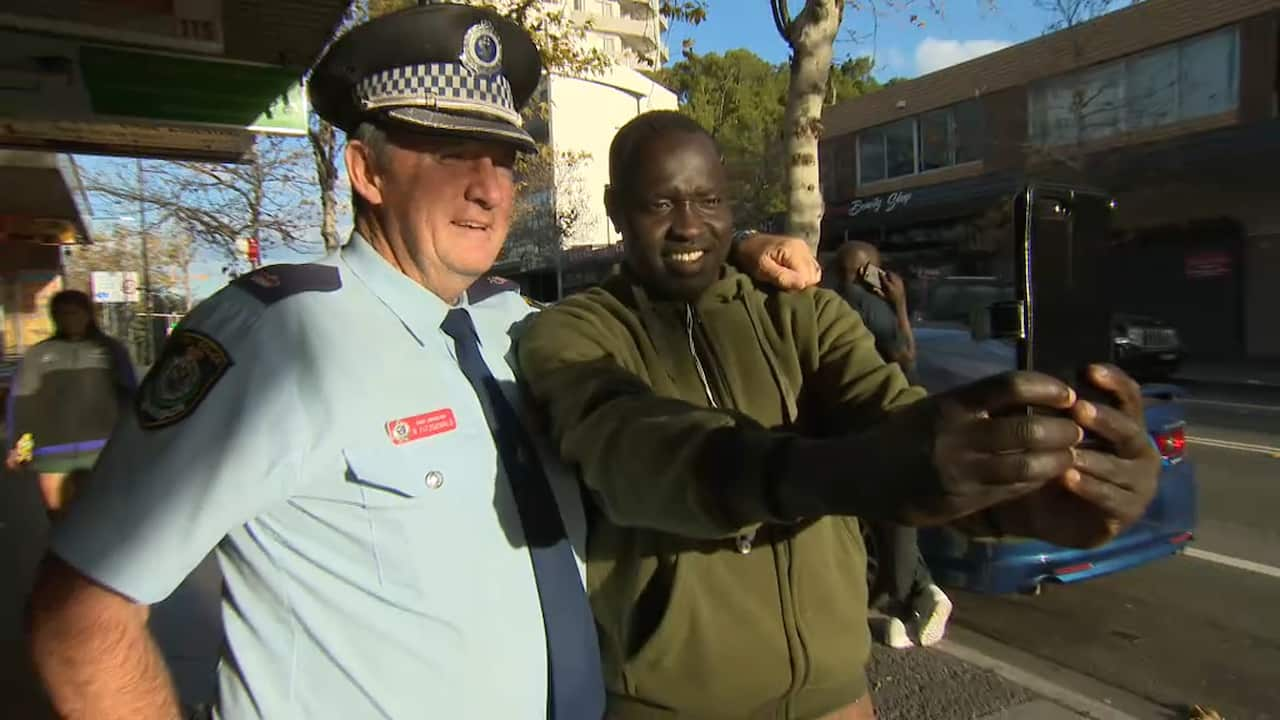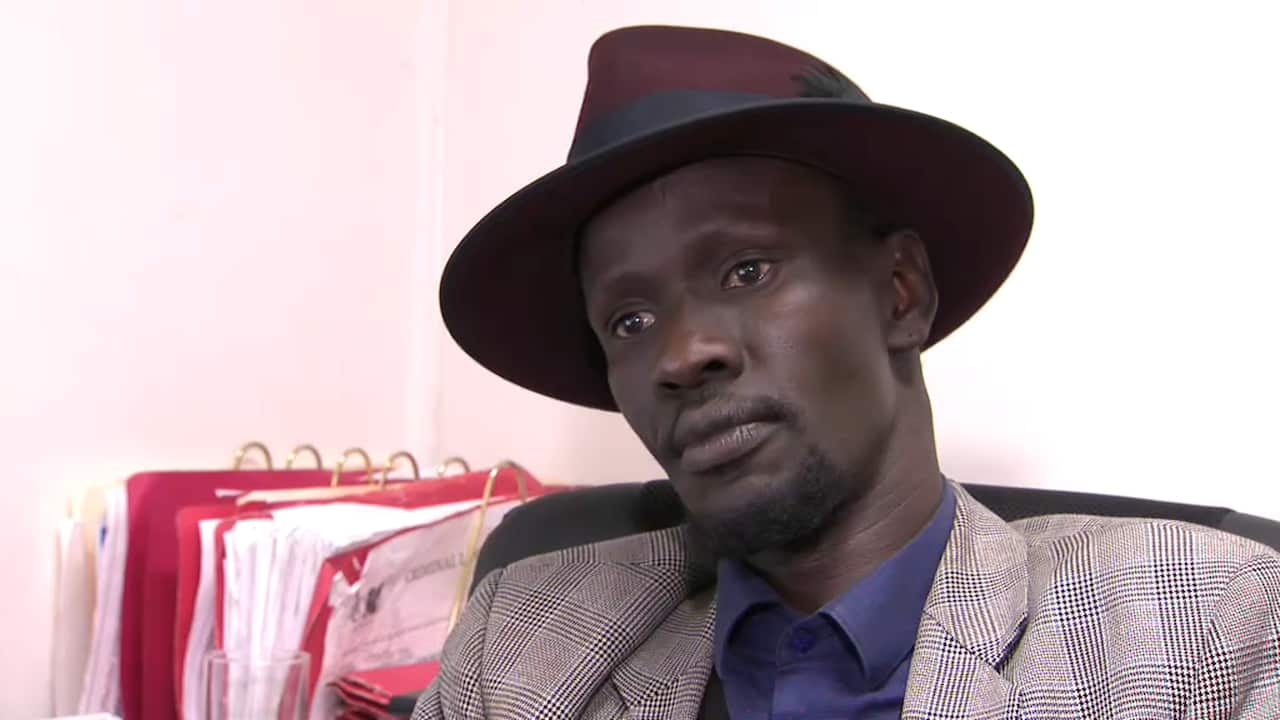Simon Winya has made a good life for himself in Blacktown, Western Sydney.
As he sits, surrounded by friends in a small Sudanese restaurant on bustling Main Street, he takes a mouthful of shaya, a traditional lamb dish.
It is a taste of home - a home he was forced to leave behind when he was barely an adult.
The 39-year-old started life in Maban County, in what is now South Sudan.
“I was born and then I lived most of my life in the jungle. There was no school, nothing at all,” he tells SBS News.

Sudan’s civil war flared up when Mr Winya was just a young boy, and his parents sent him away to school in the capital, Khartoum.
He lived and studied there in relative safety for ten years, but the threat of war would eventually catch up with him. He says he was almost conscripted to fight against his own people in a war that would claim his younger brother’s life. So aged 21, he fled.
After five years in neighbouring Egypt, he applied to come to Australia on humanitarian grounds and arrived in 2006.
Alone, and with only a basic grasp of the English language, he put himself through TAFE and went on to university, graduating with an arts degree and a degree in social work.
“Even my father who passed away a long time ago, he never would have dreamt that something like this would happen to me. I think I’m the first in my family who went to school and university,” he says.
Mr Winya now works with non-profit community organization Sydwest Multicultural Services in Blacktown, helping young people from migrant and refugee backgrounds to seize opportunities to learn and work.
Changing community
Blacktown is home to more than 2,000 people from Sudan and South Sudan, more than any other Australian suburb, and NSW Police Chief Inspector Bob Fitzgerald has lived in the area for 40 years.
While showing SBS News around he stops to chat with locals, occasionally posing for selfies.

Following a month that saw Prime Minister Malcolm Turnbull say there was an issue with “Sudanese gangs” in Melbourne, he acknowledges his community has experienced problems with antisocial behaviour but says it is largely in the past.
Offences generally considered “street crimes” are down across the board in Blacktown. Over the past ten years, robbery has fallen 7.7 per cent on average every year. Malicious damage to property has dropped 7.9 per cent annually and non-domestic assault has decreased 3.9 per cent each year.
Crime rates for those offences are still higher than the New South Wales state average, but local leaders agree it is significant progress.
Unlike Victoria, NSW doesn't release data about the ethnicity of offenders, and Chief Inspector Fitzgerald says no one group stands out as a problem.
“We don't go painting everyone with the same paintbrush. For people to say it's a Sudanese problem … they have a very limited perspective on the reality of life.”
We don't go painting everyone with the same paintbrush. - Chief Inspector Bob Fitzgerald
That’s a view shared by Deng Adut, 35, one of Blacktown’s most inspiring success stories.
A former child soldier in what is now South Sudan, he came to Australia aged 15 and knows first-hand how hard it can be to adjust.
“I ate a McDonald’s burger with the paper wrap still on it. I assumed the McDonald’s workers who were wearing uniforms were somehow like soldiers,” he says.
Now a lawyer, he works to better his community, with his efforts acknowledged when he was named NSW Australian of the Year in 2017.

Sitting in his modest office next to Blacktown Court House Mr Adut says co-operation is key to social cohesion.
He says police, lawyers and local community groups are all working together to challenge harmful stereotypes, bring cultures together and provide work and education opportunities.
He acknowledges it’s a “work in progress”, but says when walking around the area, he “walks proud”.
“I would say Blacktown would be the model of other communities in general. We are friends there are no enemies here. We are brothers, sisters, we are families.”
Back in the Sudanese restaurant, as he chats and reminisces with friends, Simon Winya is proof of that.
He’s a world away from the life he was born into, but Australia, he says, is home.

